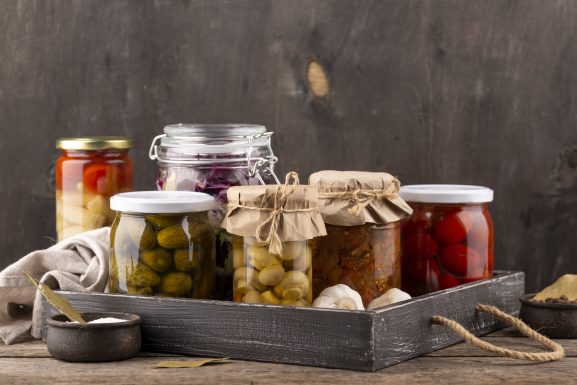It’s “common” for food to contain artificial preservatives. That’s because they can “prevent spoilage, improve appearance and texture, and maintain the food’s nutritional quality”. It’s not just fast food restaurants using artificial preservatives, either.
There are also natural preservatives — like salt, sugar, vinegar and citrus juice — but using them usually comes at a higher cost to the food manufacturer.
Artificial preservatives help decrease the price of that food product for the consumer.
But alongside these benefits, there may be some health concerns that comealong with artificial preservatives. Artificial preservatives are chemical substances that get added to food during the manufacturing process.
Some of the most popular are sodium benzoate, sorbic acid, butylatedhydroxyanisole (BHA) and butylatedhydroxytoluene (BHT).
Sodium benzoate is a preservative and microbial agent used in tomato products, pickles, sauces, fruits, fruit salads, jams, cider, salad dressing, and some meat and poultry products. On labels, sorbic acid is sometimes called calcium sorbate or potassium sorbate. “It’s a preservative used in jams, cold-processed smoked and salted fish paste, concentrate juice (except frozen concentrate juice), minced meat, marmalade with pectin, jam, syrup, pickles, relishes, smoked or salted dried fish, ketchup, tomato paste, tomato puree, margarine and salad dressing.”
BHA and BHT are preservatives with “antioxidant properties”. They help fats stay fresh longer by preventing the oils from becoming rancid. They’re used in fats and oils, potato chips, dried breakfast cereals, parboiled rice and chewing gum. Some artificial preservatives, such as nitrites or nitrates used in processed meats, have been shown to be bad for our health.
Consuming these preservatives has been shown to increase our risk of colon cancer and should be limited in our diets” In an effort to avoid artificial preservatives, some people try to use natural preservatives.
However, natural doesn’t always mean healthier. For example, alternative preservatives that are ‘all natural’ can include things like sugar and salt. We know that excess amounts of these in our diets aren’t healthy for us, even if they do come from natural sources.
Choosing to use natural preservatives can also be more expensive. If you do want to avoid artificial preservatives, you can do so by closely examining package labels. These ingredients are usually listed at the very end of the list as they are only used in small quantities. Find food labels at home or in a shop and take a picture of the label.
Find the unhealthy ingredients.

